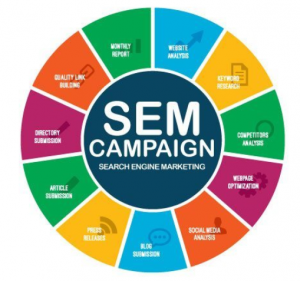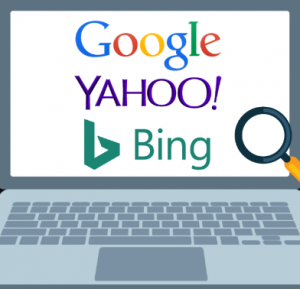
If you are involved with your firm’s marketing efforts, specifically driving traffic to your website, then your whole world is SEM: search engine marketing. The term itself was originally a generic phrase for both SEO (search engine optimization) – which is commonly referred to as ‘organic traffic’ – and paid online search activities. The latter is now officially the heart of SEM.
The whole idea of launching a website is to bring traffic (potential customers) to it. A website is an important tool that promotes your business, not only online, but can also serve the purpose of bringing customers directly to your door. It is incredibly important to acclimate yourself with the basics of SEM before you jump into handling this endeavor yourself. While you may know your industry and your customer base inside-out, the nuances of SEM can be tricky.

Search engines such as Google, Bing, and Yahoo all have options for paid search marketing campaigns. SEM (seemingly) simply enough, relies on keywords and phrases to target people who are performing those specific searches. With SEM, instead of hoping that a keyword or phrase populates in a potential customer’s search results, you have paid to be linked to that keyword or phrase and to appear at the top of the search results page. This is a pivotal moment for both you and your prospect. Have you written an ad that compels them to click? Are they curious to know more about your product or service? If both of those answers are ‘yes,’ you have mastered the art of SEM.
There are numerous tools to help businesses optimize their SEM efforts. To maximize your advertising budget, it might make sense to partner with an expert, such as Guardian Owl. We know how to maximize an SEM campaign. We carefully analyze statistics and constantly check to ensure improvements are paying off in increased website traffic. We can be your resource for all things SEM. Use our expertise to your advantage. Contact us today.

Recent Comments